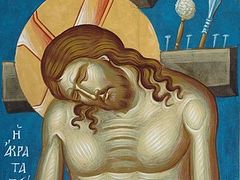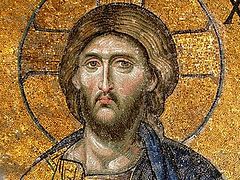Thousands of years ago when I was a teenager and a brand-new Christian, I happened to read an article by S.G.F. Brandon about Jesus being a Zealot, in which he questioned much if not most of the Gospel portrait of Jesus and suggested that the Gospels (particularly that of Mark) constituted a whitewash of Jesus, eliminating His Zealotry from the Gospel picture to make Him and His movement more acceptable in Roman eyes. It was, of course, a precis of his 1967 book Jesus and the Zealots which created something of an academic dust up in its day.
I remember being quite shaken by this frontal assault on my newfound faith. Being a high school kid, I had not yet read any of the multitude of books I was soon to read for my Arts degree in Religious Studies and for my Master of Divinity degree. I was therefore a guileless innocent, a naif who assumed that since scholars were smart, everything written by them must be right. I had not yet discovered the immense amount of academic horse manure that gets published every year in the academic world. I had also not yet heard the magic words “hermeneutic of suspicion” which explained much of such academic work in the past one hundred years.
Apparently Fr. Brandon’s thesis (until his death in 1971 he was a clergyman in the Church of England) has a long shelf life; Reza Aslan was found advancing the same theory (while not acknowledging his dependence on Brandon) in his 2013 book Zealot: The Life and Times of Jesus of Nazareth. What are we to say about this thesis? What were some of these arguments? Let us take them in turn.
First of all, it is argued that Jesus had a Zealot as His disciple (see Luke 6:16, “Simon who was called the Zealot”). In Matthew 10:4 he is called “Simon the Cananaean”.
The term “Cananaean”, be it noted, does not mean that he was from the land of Canaan or was a Canaanite. Rather it comes from the Semitic root qna, meaning “jealous, full of zeal”. Most scholars now say that the Zealots as an identifiable group committed to armed revolution did not emerge until well after Christ’s ministry, in the time just before the destruction of Jerusalem in 70 A.D. This of course does not mean that there did not exist in our Lord’s time men who were jealous for God’s honour and indignant at Rome’s occupation of their land. Doubtless there were, and it is probable that this group later morphed into the identifiable Zealot movement. Luke therefore, writing for a Gentile audience unfamiliar with Jews who were qna for the Law, uses the later term to explain this early jealousy. Simon therefore was not a Zealot, ready for armed revolution, but simply one of many who were indignant at the Roman domination of his homeland.
But even if this distinction is regarded as splitting hairs and devoid of real significance, what of it? Simon was only one out of twelve. If Jesus was a Zealot and His movement a Zealot movement, shouldn’t there have been more than one Zealot among them? Jesus’ movement was an offshoot of John the Baptist’s movement and there was indeed more than one of the Baptist’s followers among Jesus’ own first disciples (see John 1). If Jesus were a Zealot, why did more Zealots not sign on with Him?
The argument from the presence of “Simon called the Zealot” proves nothing. Jesus had a tax-collector among the Twelve too—did that mean that He and His movement were collaborators with the Romans and in Rome’s pocket? It seems clear that Simon’s zealotry was a part of his past life in the same way as was Matthew’s tax-collecting, and that Luke only refers to him as “Simon who was called the Zealot” (or “the Cananaen”) to distinguish him from Simon Peter.
Secondly, it is argued that Jesus never spoke a word against the Zealots and that this proves His sympathy for them if not His identification with them. If, as most scholars now think, the fervent in Palestine had not yet united and become an identifiable Zealot movement, this is hardly surprising. How would Jesus express an opinion about a group yet to be formed? Besides, He never spoke a word about the Essenic Qumran movement near the Dead Sea either, but this hardly proves His sympathy with them, for the Essenes rejected the Temple, but Jesus did not. We note too that the Gospels do not pretend to report everything that Jesus said or had an opinion about. He might well have spoken plainly and many times against the notion of armed uprising and we would never know it.
Thirdly, we find the argument that the cleansing of the Temple argues for Jesus’ aggressive approach and that He did not shie away from violent revolution. As evidence of our Lord’s violence, Brandon cites His words that He came to bring a sword (Matthew 10:34), His demand that His disciples must be willing to take up their cross (i.e. accept the possibility of being crucified by the Romans as revolutionaries), and that on the last night of His life He told His disciples to get swords (Luke 22:36).
The cleansing of the Temple can hardly be cited as evidence of Jesus’ commitment to armed revolution. Driving out animals and their vendors from the Temple precincts is a million miles away from killing Romans and driving them out of Palestine. Also, our Lord’s words about coming to bring a sword was clearly a metaphor, given that the sword He mentioned would not divide a Roman’s head from his body, but one family member from another family member (see Matthew 10:35-36). Luke understood this, and so paraphrased “a sword” as “division” for greater clarity (Luke 12:51).
It was the same with the swords referred to in Luke 22:36. At that time swords were carried by civilians for self-defence against robbers; our Lord’s point was that His disciples could now no longer depend upon the welcome, protection, and financial support they once received from their fellow Jews, but must now look after themselves (see the full text in Luke 22:35-36).
Like other liberal scholars, men like Brandon and Aslan can only make their case by steadfastly ignoring everything in the Gospels which speaks against their theory. It is easy to make a case when you throw out all the contrary evidence. And the contrary evidence is overwhelming.
When Christ spoke to Pilate at His trial He specifically denied His intention to overthrow Rome through violence (see John 18:36-38). Of course our Lord’s foes in the Sanhedrin played “the violent revolutionary card” with Pilate and presented Jesus as a threat to Rome (see John 19:12, Luke 23:2-5). What else could they do? It was the only charge on which Rome would execute Jesus. Rome couldn’t care less about Jesus’ claims to divinity or His assertion that He came into the world to bear witness to the truth (John 18:37). Rome cared about Jesus’ teaching only if He was planning armed insurrection. The fact that Jesus died as a revolutionary did not prove that He was one, but only that the Sanhedrin knew what they doing.
Then there is the abundant and consistent teaching of His parables. All of His parables about the Kingdom constituted a radical revision of the then-contemporary Jewish hope that the Kingdom would involve the violent overthrow of Rome and the establishment of Jewish hegemony in the world. Christ was clear that the coming Kingdom was nothing of the sort. In the Kingdom, good and evil (i.e. faithful saints and Roman oppressors) would endure and grow side by side until the end of the age (see Matthew 13: 24-30, 47-50). When the Kingdom came, not all Jews would experience it, but only those with true and good hearts who accepted His message and gave up everything to follow Him (see Matthew 23:1-9, 45-46).
These parables utterly contradicted the notion that the Kingdom involved Rome’s violent overthrow and the establishment of Jewish political power in this age. As our Lord insisted as He stood before Pilate, His Kingdom was not of this world. If it was, He said, His followers would have fought to avoid His arrest, but as it was, they did not fight (John 18:36). That is also why when Peter began to use his sword literally and not metaphorically in the garden of Gethsemane when our Lord was arrested, the Lord told him to put it back into its place (Matthew 26:52).
One final thing. There is not a shred of evidence in the epistles or the earliest history of the Church to sustain the notion that Jesus was beginning a Zealot movement or that His apostles expected Him to come back soon and overthrow Rome. Indeed, Luke’s history of the earliest church and the Pauline epistles present us with a spiritual Kingdom, one which assumes that Rome will endure until the end of the age and that Christians await not Rome’s overthrow but a new heaven and a new earth. (The imagined quarrel between Paul and the Twelve, championed by the late F.C. Baur and all the rage when Brandon was studying, is without merit.) And the notion that the Twelve somehow colossally misunderstood their Master but that we can now understand Him perfectly by reading their fatally whitewashed and compromised Gospels is manifest nonsense.
There is nothing for it. Making Jesus into a Zealot can only be done by specious reasoning and by jettisoning most of the New Testament evidence. But it does sell books.





